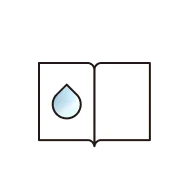REPORT
Insight
Survey of 1,000 people: 60% say diversity is necessary for beauty <ampule magazine Vol.01>
This survey was excerpted from the July 2021 issue of ampule magazine Vol. 01.
To read the corresponding article and the full magazine, please visit the back issues of the electronic version of ampule magazine.
▼ampule magazine
https://ampule.jp/magazine/
ampule magazine Vol.01 “Changing ‘Beauty’, Changing Us”
The theme of this first issue is the changing consciousness surrounding Beauty. Recently, the definition and awareness of beauty has been changing, with a variety of models being used in creative advertisements and frequent discussions about “lookism” on social networking services. We will consider the new Beauty of the coming era and our changing values based on the trend transition in Japan, the latest information from overseas, and sei-katsu-sha information surveys.
<Survey Outline>
Surveyed by Trenders
Survey period: May 14-16, 2021
Survey target: 1,000 men and women in their 20s-40s
Survey method: Internet survey
<results>
I agree.:59.2%

■I think people should be free to choose their own standards of beauty (37 yrs. old, female)
■I think it would be better if more importance was placed on inner beauty (36 yrs. old, male)
■I feel that many commercials are based on the concept of getting close to fair-skinned or thin people (28 yrs. old, male).
■It’s bad that people exposed on TV and other media have similar faces. I wish the commercials would be structured in such a way that it does not create a trend of putting down the appearance of comedians, etc. (27 yrs. old, female).
■Why not use different types of people as models for magazines? Not only the trendy thin type, but also slightly chubby, unique hairstyles, etc., in one magazine instead of dividing them into different magazines (45-year-old female).
■If “beautiful” is fixed, the opposite concepts of ‘ugly’ and “dirty” are also fixed (22-year-old female).
■I think it is wrong to compete for beauty. Such competitions and events can be eliminated.(44 year old female)
<results>
feel:34.0%

■The promotion of genderless and the Corona disaster have made me feel beauty for the first time when I watched art (musicals, movies, etc.) that I used to take for granted (29-year-old woman).
■Makeup and other techniques for single-layered girls are now seen as cute and attractive (25 year old female).
■I felt that consideration for genderlessness and men wearing makeup is spreading (29-year-old woman).
■I think the idea that being thin is beautiful is changing (Male, age 36)
■Until recently, many thought that being thin was beautiful, but I saw in the press a few years ago that chubby model magazines are being published and that some model shows require a healthy body shape (not too thin) as selection criteria (27 year old female).
■The beautiful ones are like this. When I say, “This is how beautiful things are,” I am discriminated by those who are not beautiful and those around them. So, I can’t say that something is not beautiful on a large scale, but I have to say that it is even if I don’t think so (37-year-old male).
While a large number of people feel that diversity is necessary for Beauty, the reality seems to be that there is little sense that things have actually changed.
<Figure>Many of the top respondents get information from the media and SNS.

Looking at the overall numbers for where they gather information on beauty, television was the number one choice. However, looking only at responses from women in their 20s, Instagram, Twitter, and YouTube were in the top three, suggesting that the younger generation is mainly gathering information through SNS.
Today, popular influencers and beauty YouTubers, for example, are overflowing with content that transmits information outside of TV and magazines. Then, “You can get as much information as you want on SNS. There is also information that is the exact opposite, so I don’t know what to believe (27-year-old female)“ and ”What each medium says is different. It may change little by little as time goes by, but it’s complicated (36-year-old woman). While it may be an advantage to be able to obtain a lot of information without spending a lot of money, it seems that people are sometimes at the mercy of the media because they do not know what to believe.
In this regard, personalized products, as discussed in P5, could be a factor that attracts attention in the future. Another respondent commented that, while feeling information overload, the direction of beauty products is ultimately similar, which may cause the concept of beauty to become more centralized.
The above graph shows the results of an Internet survey of 1,000 men and women in their 20s~40s conducted in May 2021.
While a majority of the respondents answered that “Beauty requires diversity,” only about 30% of the respondents actually felt a change. By generation, however, 40.3% of those in their 20s, 29.8% of those in their 30s, and 31.9% of those in their 40s said they feel a change, indicating that younger generations are more sensitive to diversity in Beauty.
On the other hand, this generation, which is native to social networking sites, follows “Beauty trends” extremely quickly. And the fact that they can easily find out the reactions to these trends acts like a kind of drug. For example, once a make-up or item that looks good on SNS becomes a hot topic, similar posts are uploaded one after another. While social networking sites have the potential to diversify beauty, we must not forget the danger of creating new stereotypes. Nevertheless, there is no doubt that a change in values is taking place, especially among the younger generation.
If each and every one of us takes a hint from the various initiatives introduced in this magazine and adopts a diverse range of perspectives, beauty in Japan will surely evolve.





